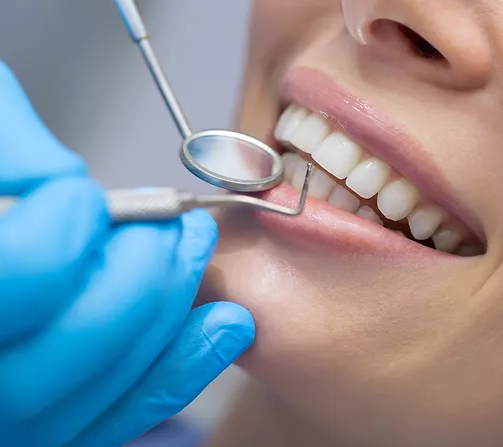It is both exciting and scary to get braces. As a result of not knowing what to expect, many patients visit a dentist feeling a little worried. Everyone is different, but most patients say that the first week is the worst. However, you'll be well on your way to a gorgeous smile once you've adjusted.
You can use the following advice to get through the period of getting used to wearing braces:
1) Do not leave the place with unanswered queries- Your dentist wants to ensure you are as informed as possible about braces. Please ask any questions you may have to avoid becoming confused by the amount of information they cover during your first visit. Before you leave, confirm that:
● Wire ends should be inspected. The doctor will instruct you to check the wires with your tongue and finger to ensure they aren't running into your cheeks or your tongue in the wrong direction. To be honest, what you may consider a slight ache after 24 hours won't feel that minor.
● Recognise the next actions. Before your next appointment, be sure you are aware of your responsibilities. This might involve using elastics, using headgear, according to particular hygiene advice, etc
● Stock up on enough supplies. Ask for plenty of tooth wax, cleaning tools, elastic bands, or other supplies you might require before your next appointment with an orthodontist
.
2) Have over-the-counter pain medication on hand.
in contrast to several other dental treatments, applying braces is not uncomfortable. No drills or needles are used here! You'll probably start to notice the effects of the arch wires pulling the teeth into position about six hours after the bonding, though. Even though the pressure is light, it takes a few days to become used to it, and during that time, your teeth and jaw may feel a little uncomfortable and achy. You can take an over-the-counter painkiller like ibuprofen or Tylenol an hour before your session to help with braces pain. In this manner, the painkiller will have started acting by the time your wires start pressing against your teeth.
3) Eat the right foods. And we're not referring to your vegetables! Knowing which items to consume and which to ignore will make your life with braces. Eating with braces is a new experience. You can eat as soon as you leave the clinic, but we advise sticking to soft meals for the first several days, limiting your intake to spaghetti, seedless bread, pudding, soup, yoghurt, applesauce, etc., while your mouth and teeth acclimate. You can gradually add more solid foods as your discomfort decreases, and you get used to wearing braces. However, some foods should never be consumed while wearing braces. These consist of the following:
● Sticky foods - Caramels, Chewing Gum
● Hard foods - Nuts and hard candies
● Foods that are difficult to bite into - Apples, carrots, corn on the cob
● Chewy foods - Bagels, pizza crust, liquorice
● Crunchy foods -Popcorn, chips, and ice
4) Saltwater and wax both ease discomfort. As you get used to wearing braces, brackets and wires might irritate the delicate skin in your mouth. While your skin will eventually become more resistant, we strongly advise utilising the wax we supply to relieve any discomfort in the interim. Warm salt water rinses will also aid in pain relief and hasten the healing process for wounds. One cup of warm water with half a teaspoon of table salt should be rinsed five to six times daily for 30 seconds. Don't wait until you can no longer take the pain since there is no reward for waiting.
5) Don't forget to maintain decent dental hygiene. With braces, dental hygiene is more complicated, but it will be worthwhile to spend the time cleaning your teeth properly. Every time you eat, brush your teeth and get any food particles out of your brackets, including the rear ones. Maintaining your regular brushing and flossing schedule is crucial while you have braces. Try ortho-pick flossers if you find it challenging to floss while wearing braces. These are made to slip easily between teeth and bracket wires to get rid of food debris and plaque accumulation. Reach our experts for help if you find any aspect of your oral hygiene routine too demanding to keep up.
These pointers will help you start on the right foot because everyone adjusts to braces differently. Your braces won't even be noticeable in a short while. Never hesitate to call our dental practice in Surrey if you have any questions before, during, or after your treatment.





Comments